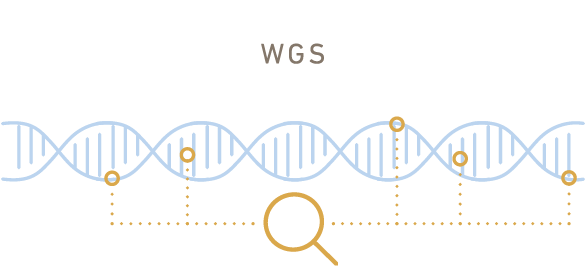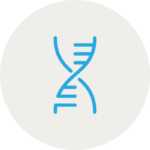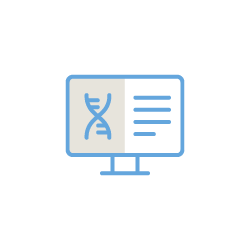Whole Genome Sequencing (WGS) is the most comprehensive test available through Baylor Genetics. It analyzes up to 98% of the human genome, detecting known and potential disease-causing variants that may not be identified on more targeted genetic testing. Additionally, WGS covers both the protein-coding exons and clinically significant non-coding regions of the genome.
As the most comprehensive genetic test available, WGS captures virtually all disease-causing genetic variations including single-nucleotide variants, small insertion/deletions, copy number variants, and a comprehensive set of tandem repeat disorders. In addition, WGS also captures variants within the mitochondrial genome which further increases clinical utility.










